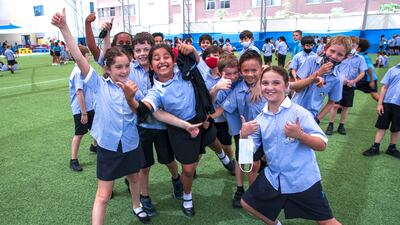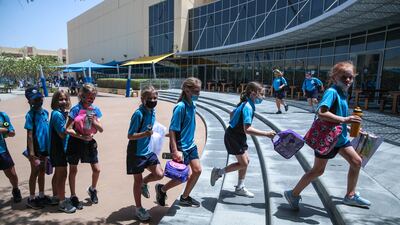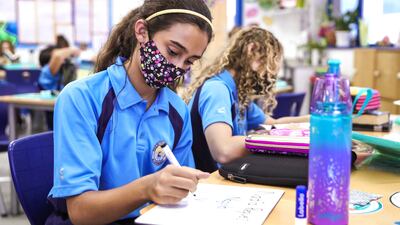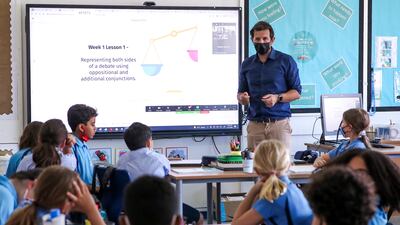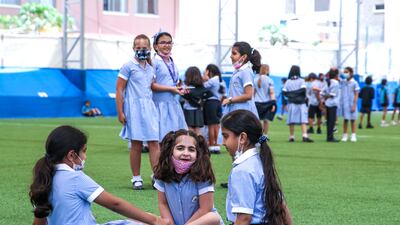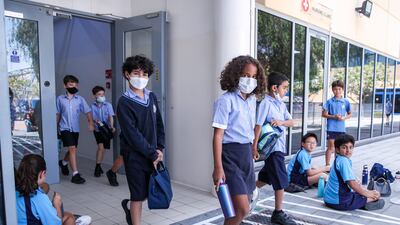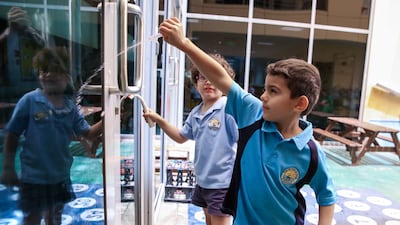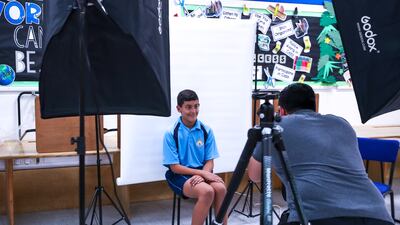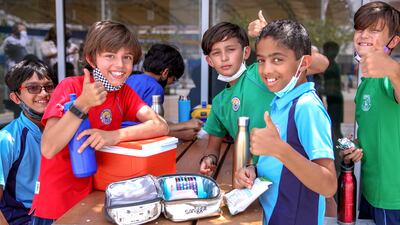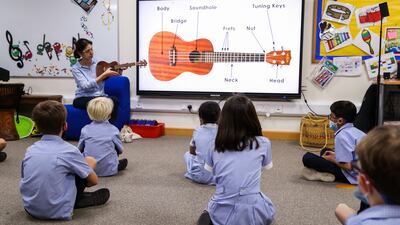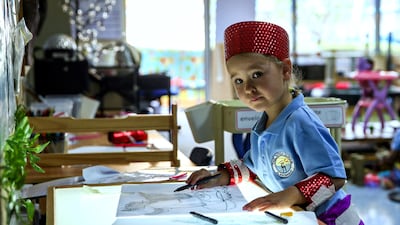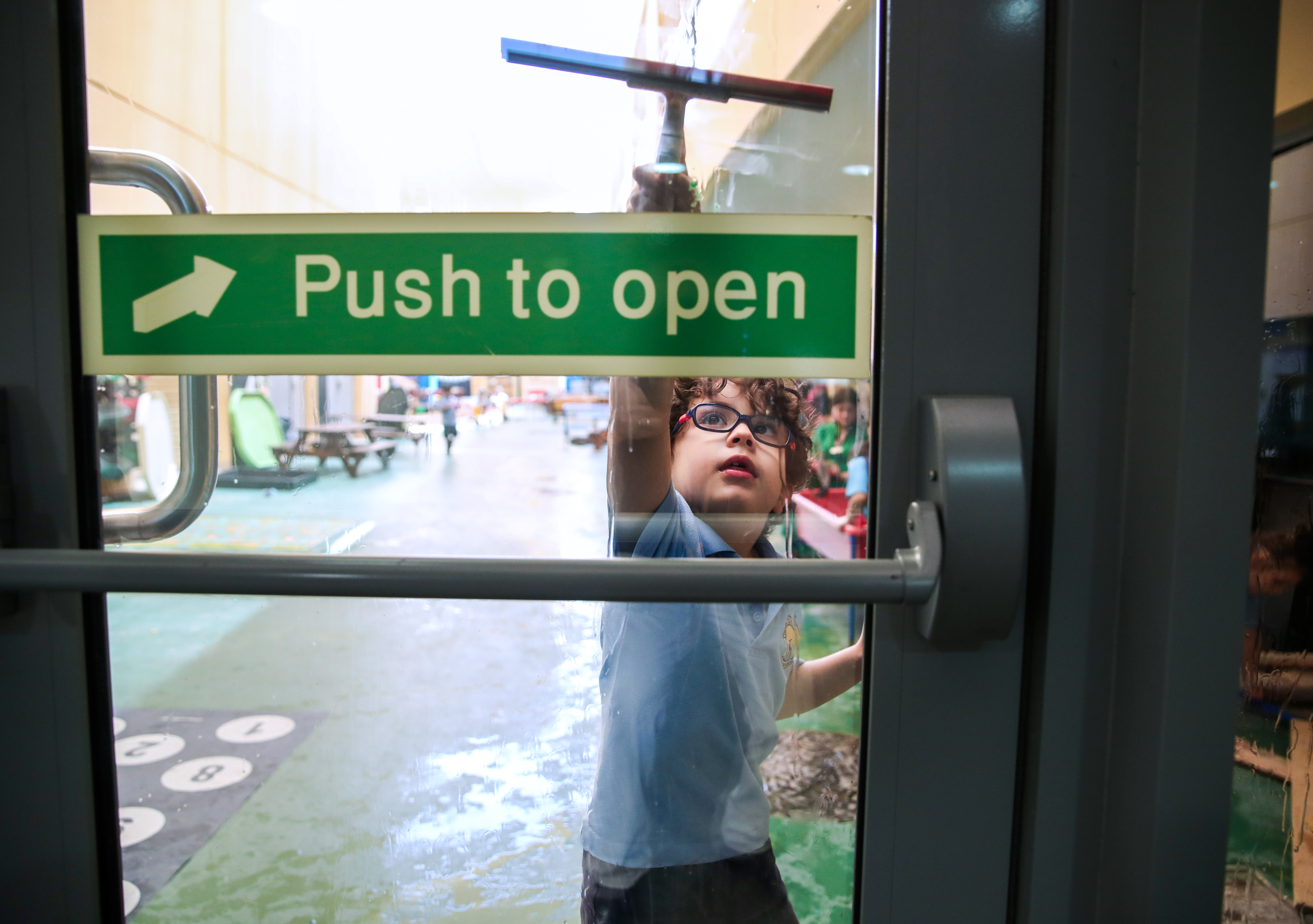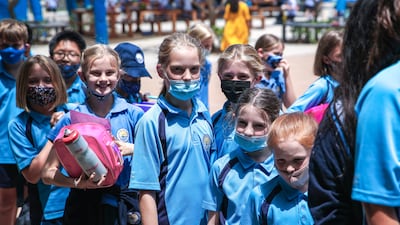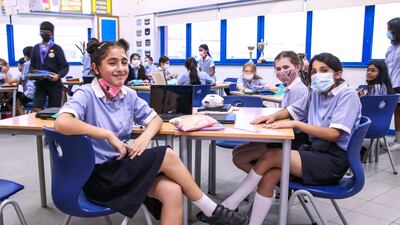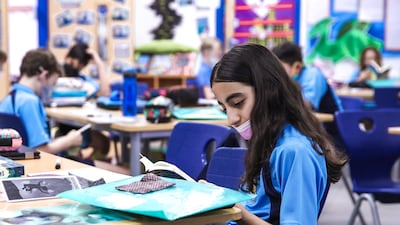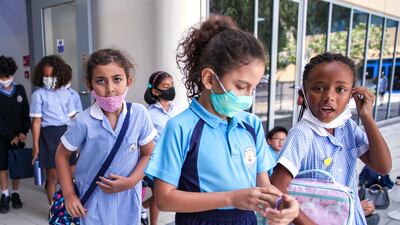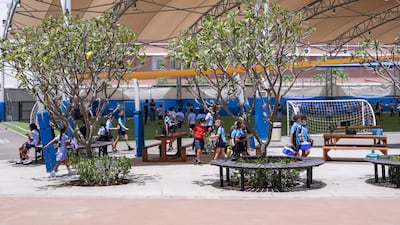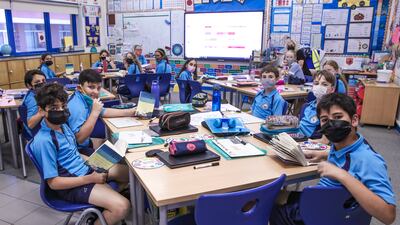Thousands of pupils at Abu Dhabi’s private and charter schools were back in the classroom on Monday, with hundreds experiencing face-to-face lessons for the first time in two years.
Excluding those with medical exemptions, pupils are no longer allowed to opt for distance learning in the emirate and must attend classes in person.
Abu Dhabi's Department of Education and Knowledge informed schools and parents over the spring break that all distance learning would come to an end, except for those with exemptions. The authority also announced a spate of changes in a circular before the final term of the school year began.
International Indian School Abu Dhabi
Dr Beno Kurien, principal at International Indian School Abu Dhabi said close to 500 pupils of the 1,000 enrolled at his school had returned to in-person lessons for the first time in two years this week.
“The majority, around 60 per cent of pupils, had been completely out of school for the past two years. Today is the first day they're back,” said Dr Kurien.
“Since last week, class teachers have been holding sessions and orientations with parents and pupils.
"The teachers were there to welcome all the pupils and take them to the classrooms for interactions."
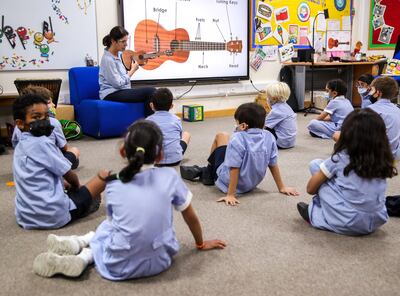
Dr Kurien said that with many pupils returning after so long, he had ensured teachers used the first day back to help pupils reintegrate.
Physical distancing measures in indoor areas have also been removed and unvaccinated pupils aged 16 and above can now return to school but have to provide a negative PCR test result every week, the emirate's education authority announced last week.
Dr Kurien said his school chose to keep some of the former guidelines in place for safety reasons.
“It’s a big school and we are still maintaining a one-metre distance while previously it was 1.5 metres. Now, we are keeping it one-metre distance and 30 students per class,” said Dr Kurien.
With schools taking steps to move closer to a pre-pandemic normality, Mark Leppard, headmaster at The British School Al Khubairat, said authorities were being careful in not rushing back to pre-pandemic rules.
“These things are a step back to normal. We're not quite there yet, because we still have to wear masks. I think the authorities are doing it carefully. I don't think they're abandoning everything that they've put in place, hence the regular PCR checks and the wearing of masks," said Mr Leppard.
“I think that's good at the moment. I hope over time that will also disappear.
"I think the next step will be for masks indoors to be removed. Obviously, they're a safety precaution and we fully support that. But as things continue to improve in this country, I think masks being removed will be the next step."
Pupils in grades 1-12 will be required to wear face masks indoors.
Of the nearly 2,000 pupils at the school, 96 per cent had been attending in-person lessons through the year.
“We haven't seen a great uptake of distance learning, only those who genuinely needed it," said Mr Leppard.
“We've only offered distance learning to medically vulnerable students, or with family members who are medically vulnerable, or displaying Covid symptoms after being checked by a doctor."
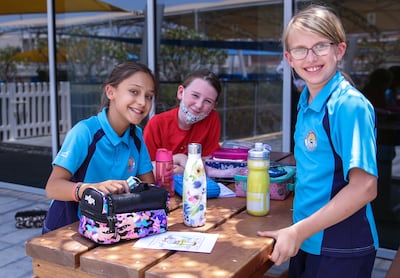
For now, the school is following a one-way system at places to enable better social distancing. This will be removed over the next week.
Robert Rinaldo, head of Gems American Academy Abu Dhabi, said out of about 1,800 pupils, only 2 per cent to 3 per cent had been studying remotely. He expected that number go down to zero over the next couple of days.
"I think the biggest changes are regarding close contacts and not having to shut down the school based on a number of pupils within each bubble, then the fact that parents can come back into school," said Mr Rinaldo.
The updated protocols remove classroom and bubble closure requirements, with a three-day school-level closure occurring only if 15 per cent of the student body test positive at the same time.
Mr Rinaldo said the updated protocols would help schools as they previously had to study how many Covid-19 cases were in each bubble and make decisions regarding closures accordingly.
"Also, the desk arrangements are very important," he said. "In addition to content, we also have pupils working together collaborating on projects to really try to identify a problem and make an impact with their learning.
"The distribution of class where we had to be in rows really changed the way we taught and learn. Now we're more collaborative. That's a big change," said Mr Rinaldo.
